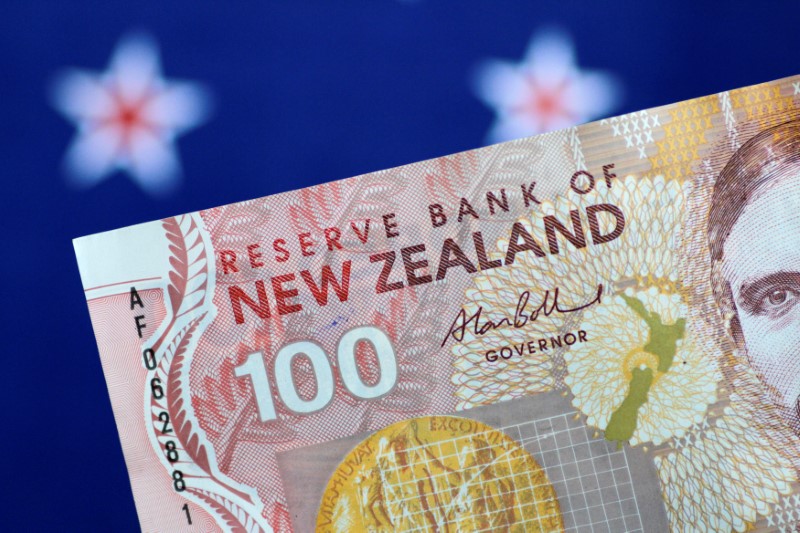By Ambar Warrick
Investing.com-- The New Zealand dollar jumped on Tuesday after inflation for the third quarter blew past expectations, driving up bets that the central bank will deliver more interest rate hikes this year.
The kiwi jumped 1.2% to a near two-week high of $0.5700. Its gains were triggered just after the consumer price index read substantially higher than expected for the third quarter.
On an annualized basis, New Zealand’s CPI rose 7.2% in the three months to September 30, compared with expectations for a reading of 6.6%, and last quarter’s reading of 7.3%. The reading remained near 32-year highs, as supply chain disruptions and rising fuel and food costs pushed up prices.
CPI inflation also grew 2.2% from the prior quarter, more than expectations for growth of 1.6%.
The Reserve Bank of New Zealand has raised interest rates at a record pace since last year, given that it was one of the first major central banks to begin tightening policy in the aftermath of the COVID-19 pandemic.
Analysts are now forecasting a potential 75 basis point hike by the bank in November, which will bring interest rates in the antipodean economy to 4.25%, their highest level since the aftermath of the 2008 financial crisis.
The RBNZ has now been raising interest rates for a year, since it began a tightening cycle in late-2021. If November’s hike happens as expected, interest rates will have risen a whopping 4% in 12 months, the sharpest rise ever seen in the country.
The Reserve Bank does not expect inflation to fall within its 1% to 3% target range until at least mid-2024. But Tuesday’s inflation data shows that the bank is likely falling behind in its battle against inflation.
New Zealand, like most major economies, is reeling from rising inflation in the aftermath of the COVID-19 pandemic. Rising commodity prices, spurred by supply chain disruptions and the Russia-Ukraine crisis, have also seeped into local price pressures.
But a robust labor market, coupled with a lingering monetary boost from COVID-era stimulus measures, have also contributed to high inflation this year.
